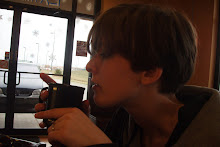Guy Debord...About the Situationist game:
Situationists seem to be another one of those art movements that defies any one definition. The central idea of situationism, as the name suggests, revolves around the creations of situations, what Debord calls the ambiances of life. These situations are transformed then into an art form by giving them superior emotional quality.
In his writing, Debord describes the Situationist movement as a working hypothesis, rather than as a group with a concrete set of rules. The situationist game, he says, "is not distinct from a moral choice, the taking of one's stand in favor of what will ensure future reign of freedom and play." From this statement, I gather that the Situationists have a moral agenda in mind, perhaps an agenda to protect freedom within the arts and to promote the challenging of traditional systems. Debord also notes that the current American society that he lives in (1957) seems to be in somewhat of an anesthetized state. With the rising popularity of television and media, it is difficult for people to develop any sort of accurate political or social awareness.
Thus, the movement relies on rough experimentation, made to bring people toward a new mode of behavior, to bring them on a passional journey which will bring them out of the ordinary through rapid changing "ambiance." I believe that this construction of situations is not meant to "awaken" people from their tranquilized states of unconsciousness, but perhaps merely to underline the fact that we are unconscious. I think that the situations are exploring some truth that lies behind what people ordinarlily see. These creations are no more "real" than what we see on tv, that which is taken for truth. They merely ask us to explore what defines our perceptions of reality.
Subscribe to:
Post Comments (Atom)

1 comment:
Do you wonder what motivates an initiator of a "movement" in art to defy definition? This evening, my husband told me that he enjoys playing chess because win or lose, there is an end to the process - unlike that of painting. I wonder if the impulse to resist definition is a cynical ploy to remain flexibly relevant or if it is a genuine reflection of creative process.
A contemporary re-working of the Situationist movement is Interventionism - taking art to the streets; not necessarily person-to-person, but an interaction with the environment in which the art is a trace of that interaction.
Post a Comment